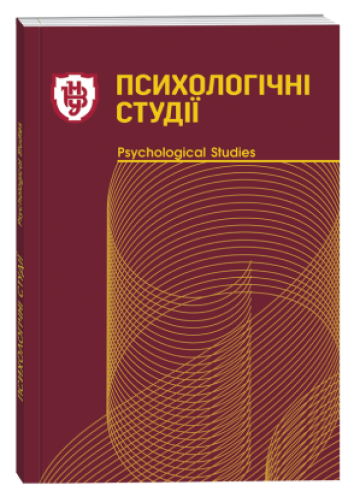ОСОБЛИВОСТІ РОЗВИТКУ СОЦІАЛЬНОГО ІНТЕЛЕКТУ ДІТЕЙ МОЛОДШОГО ШКІЛЬНОГО ВІКУ В СУЧАСНИХ УМОВАХ ЦИФРОВОГО СЕРЕДОВИЩА
DOI:
https://doi.org/10.32782/psych.studies/2023.4.10Ключові слова:
молодші школярі, розвиток, онтогенез, соціальний інтелект, спілкуван- ня, цифрове середовище.Анотація
У статті представлено дослідження особливостей розвитку соціального інтелекту у дітей молодшого шкільного віку в сучасних умовах цифрового середовища. Встановлено, що, незважаючи на велику кількість наукових розвідок стосовно цього питання, проблема розуміння феномену залишається актуальною. Визначено, що соціальний інтелект – це специфічна здатність, яка забезпечує успішну взаємодію людини з оточенням та вміння прогнозувати поведінку інших. Метою статті є дослідження особливостей розвитку соціального інтелекту молодших школярів в умовах цифрового освітнього середовища. Проаналізовано підходи різних науковців щодо розвитку соціального інтелекту в онтогенезі. У роботах іноземних авторів розвиток соціального інтелекту пов’язаний їз періодизацією розвитку соціального інтелекту. Зокрема, Ж. Піаже виділяв низку етапів: 1) сенсомоторного інтелекту; 2) допонятійного (символічного) інтелекту; 3) наочного (інтуїтивного) інтелекту; 4) конкретних операцій; 5) формальних операцій. Розглянуто теорію прийняття соціальної ролі Р. Селмана, який виділяв п’ять основних стадій розвитку соціального інтелекту. Ключовою у статті є теорія П. Ервіна, який співвідносив особливості розвитку особистості дитини з якісними зрушеннями у розвитку соціального інтелекту та на основі цього розробив модель розвитку уявлень дітей про міжособистісні стосунки, насамперед про дружбу у взаєминах з однолітками. Підтверджено, що важливе значення для становлення соціального інтелекту має молодший шкільний вік. У цей період у дитини розширюється коло спілкування, розвивається її сензитивність, соціально-перцептивні здібності, здатність переживати за іншого, децентрація, що і становить основу соціального інтелекту. Проведене емпіричне дослідження – анкетування батьків молодших школярів – вказує на те, що цифрове освітнє середовище є невід’ємною частиною життя кожної дитини і воно має величезний потенціал для вирішення різних освітніх завдань. У висновках вказується, що формування та розвиток соціального інтелекту в молодшому шкільному віці відбувається через навчання, розширення знань та досвіду, в тому числі із застосуванням засобів сучасного цифрового середовища.
Посилання
Ломага Н. Теоретичні аспекти проблеми розвитку соціального інтелекту молодших школярів. Наукові записки : збірник матеріалів наук.-практ. конфер. викл. і студ. ІППМ. Вінниця : ВДПУ, 2016. № 7. С. 160–163.
Мельник А. Віковий аспект вивчення соціального інтелекту дітей різного шкільного віку. Вісник Харківського національного університету. 2013. № 1065. С. 144–146.
Руда Н. Соціальний інтелект у структурі інтелекту. Проблеми сучасної психології. 2013. № 21. С. 621–629.
Булка Н. Ресурси соціального інтелекту: адаптивність, комунікативність, креативність. Практична психологія та соціальна робота. 2004. № 6. С. 43–53.
Дуткевич Т.В. Дитяча психологія. Київ : Центр учбової літератури, 2012. 424 с.
Кулакова Л. Розвиток соціального інтелекту у дітей молодшого шкільного віку в умовах навчальної діяльності. Психологія: реальність і перспективи. Збірник наукових праць РДГУ. 2020. № 15. С. 97–103.
Орап М. Методологічні проблеми дослідження соціального інтелекту дітей молодшого шкільного віку. Психологія особистості. Емпіричні дослідження у психології особистості, 2017. № 8(1). С. 119–126.
Савченко Ю.Ю. Розвиток емоційного інтелекту учнів молодшого шкільного віку. Освіта та розвиток обдарованої особистості. 2014. № 12(31). С. 12–16.







